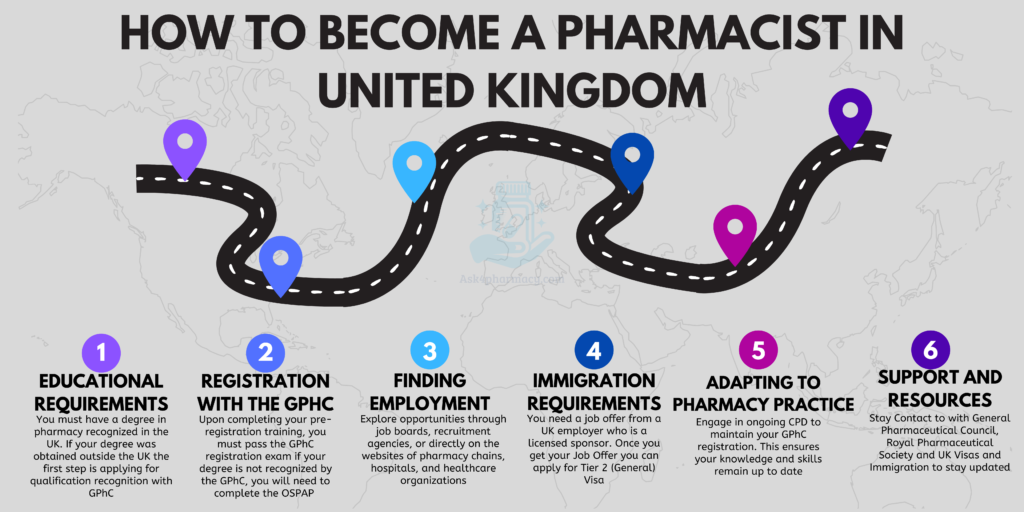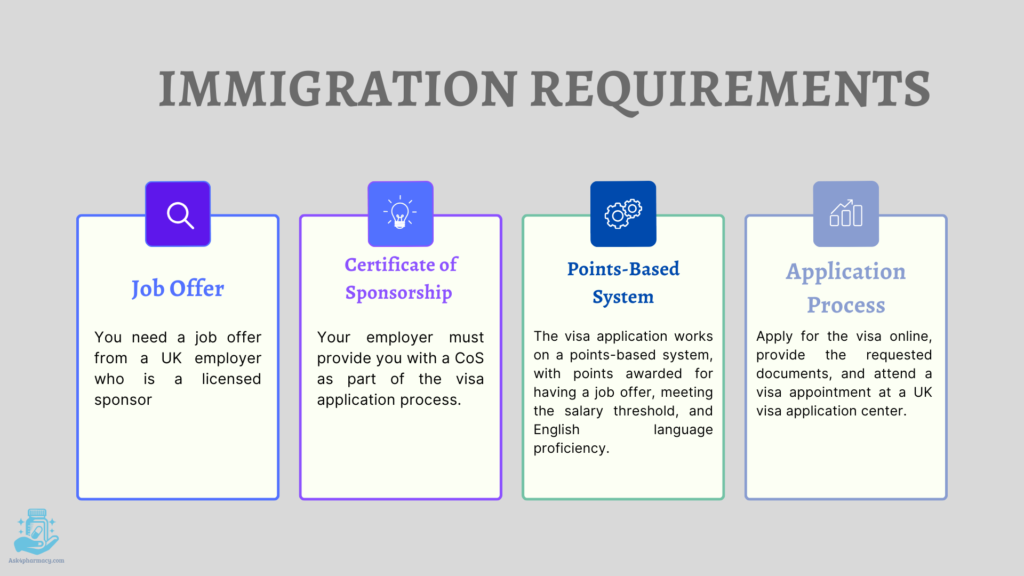How To Become A Pharmacist United Kingdom
Pharmacist jobs in the UK are well-paying, ranging from £35,000 to £50,000 per annum, depending on experience. This profession offers a rewarding career with a great job security, diverse work environments such as hospitals, clinics, and community pharmacies, and the opportunity to enhance patients’ health. It also provides excellent promotion prospects and a decent work-life balance.

If you want to work or immigrate to the UK and practicing as a pharmacist, there is a official procedure to follow that include immigration requirements and registration with professional bodies. Here’s a brief guide:
1. Educational Requirements
- Pharmacy Degree: You must have a degree in pharmacy recognized in the UK. If your degree was obtained outside the UK, you must undergo an equivalence process to ensure it meets UK standards.
- General Pharmaceutical Council (GPhC) Recognition: If you are a foreign-trained pharmacist, the first step is applying for qualification recognition with the General Pharmaceutical Council (GPhC).
2.Registration with the General Pharmaceutical Council (GPhC)
- Overseas Pharmacists Assessment Programme (OSPAP): If your degree is not recognized by the GPhC, you will need to complete the OSPAP. This is a one-year postgraduate diploma designed to familiarize pharmacists with UK pharmacy practice.
- Pre-Registration Training: After completing the OSPAP, you must undertake a 52-week pre-registration training placement under the supervision of a registered pharmacist.
- GPhC Registration Exam: Upon completing your pre-registration training, you must pass the GPhC registration exam, which evaluates your knowledge and skills for practicing as a pharmacist in the UK.
- Language Proficiency: You must demonstrate proficiency in English, typically by passing an approved language test such as the IELTS Academic or OET (Occupational English Test).
3. Finding Employment
Job Search: Explore opportunities through job boards, recruitment agencies, or directly on the websites of pharmacy chains, hospitals, and healthcare organizations.
Networking: Join professional associations such as the Royal Pharmaceutical Society (RPS) and attend industry events to connect with potential employers.

4. Immigration Requirements
Skilled Worker Visa: Formerly known as the Tier 2 (General) Visa, this is the most common route for non-UK pharmacists to work in the UK .

For detailed visa information, visit UK Visas and Immigration (UKVI).
5. Adapting to UK Pharmacy Practice
- Cultural Adaptation: Familiarize yourself with the UK healthcare system, regulations, and the role of pharmacists to adjust more quickly.
- Continuing Professional Development (CPD): Engage in ongoing CPD to maintain your GPhC registration. This ensures your knowledge and skills remain up to date.
6. Support and Resources
- General Pharmaceutical Council (GPhC): The regulatory body for pharmacists in the UK. Visit their official website for more information.
- Royal Pharmaceutical Society (RPS): The professional body for UK pharmacists, offering resources, support, and networking opportunities.
- UK Visas and Immigration (UKVI): Provides detailed information on visa requirements and the application process.
Tags
About Pharmacist (6) About Pharmacy (10) Free Courses (5) Pharmacist in Usa (6) Work As Phramacist (18)